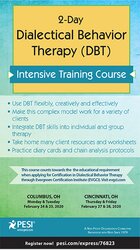Stars Training Academy serves as the purveyor of the Transition to Independence Process (TIP) Model®.
- Tipp Options Dialectical Behavioral Training Strategies
- Tipp Options Dialectical Behavioral Training Reliaslearning
- Tipp Optionsdialectical Behavioral Training Program
- Tipp Optionsdialectical Behavioral Training Relias
The Transition to Independence Process (TIP) Model is an evidence-supported practice with six published studies supporting its effectiveness to improve post-secondary outcomes. These include: increased employment and post secondary career education, improved community-life functioning, and reductions in the use of intensive mental health services and in incarceration.
The TIP Model is a strength-based, youth-driven framework that was developed for working with youth and young adults (14-29 years old) with emotional/behavioral difficulties (EBD) to:

- Engage youth and young adults in their own futures planning process
- Provide youth with developmentally appropriate, non-stigmatizing, culturally competent, and appealing services and supports
- Involve youth and their families and other informal key players in a process that prepares and facilitates them in their movement toward greater self-sufficiency and successful achievement of their goals related to their relevant transition domains.
The TIPP skill is part of Dialectical Behavior Therapy (DBT) and is helpful to have handy during a crisis – using it when your emotions are high and you’re feeling that physical response going on in your body. Evaluation of behavioural skills training for teaching abduction-prevention skills to young children. Journal of Applied Behavior Analysis, 38, 67-78. Miles, N.I., & Wilder, D.A. The effects of behavioral skills training on caregiver implementation of guided compliance. Journal of Applied Behavior Analysis, 42(2), 405-410. Behavioural Training is an extremely important element of all corporate training programs for companies as globally it is recognized in inculcating the right attitude in their employees. 'If you want to change attitudes, start with a change in behaviour', says Dr. William Glasser who is the great psychiatrist from the US.
The Transition to Independence Process (TIP) Model Institute
Dialectical Behavior Therapy (DBT) focuses on teaching patients and families several strategies to help tolerate painful emotions and to manage difficult situations in the best way possible. We all face situations that are out of our control, that are difficult to tolerate, and that cause us to feel emotionally out of control. Marsha Linehan developed dialectical behavior therapy (DBT) in the early 1990s specifically for the treatment of borderline personality disorder. DBT is a multifaceted treatment approach that includes facets of cognitive behavior skills training, mindfulness meditation, behaviorism and dialectics. Though none of these individual aspects is novel on its own, implementing them together in a.

The TIP Model Institute functions replace the National Network on Youth Transition and Behavioral Health (NNYT). The TIP Model Institute applies research-based fidelity standards for the training, implementation and sustainability of the TIP Model at the practice, program, and system levels to improve the outcomes of youth and young adults with emotional, behavioral, cognitive, and/or mental health challenges.
The TIP Model Institute consists of a Professional Advisory Committee and a Certification and Accreditation Board.
The TIP Model Institute Professional Advisory Committee advises and provides recommendations on TIP Model Institute policies and procedures and identifies TIP Model-related research needs.
Site-Based Trainers
Tipp Options Dialectical Behavioral Training Strategies
® is a youth-driven, strength-based, evidence-supported framework that was developed for working with youth and young adults (14-29 years old) with emotional/behavioral difficulties (EBD) to improve their real-life outcomes across Transition Domains such as Education, Employment, Career Housing and Community Life Functioning.Specifically, the TIP Model® focuses on:
- Engaging youth and young adults in their own futures planning process
- Providing youth with developmentally appropriate, non-stigmatizing, culturally competent, and appealing services and supports
- Involving youth and their families and other informal key players in a process that prepares and facilitates them in their movement toward greater self-sufficiency and successful achievement of their goals related to their relevant transition domains.
 ® Training depends on the three main factors:
® Training depends on the three main factors:Tipp Options Dialectical Behavioral Training Reliaslearning
- The TIP Model® Training option you choose: For example, if you want a brief TIP Model® Overview Training it would cost less than if you chose a more comprehensive, high-fidelity TIP Model Training and Implementation process
- The number of individual participants included in the TIP Model® training(s). We assign one TIP Model® Consultant for every 15-20 trainees and will add more TIP Consultants as needed as the number of trainees increases.
- The locations and total number of program sites to receive TIP Model® Training
Tipp Optionsdialectical Behavioral Training Program
All Training Academy consultants are seasoned clinicians with a wealth of professional training experience. The TIP Model® Consultants utilize research-based training and implementation methods as they provide consultation and technical assistance to help organizations achieve sustainable, high-fidelity TIP Model® practices in their programs.
Our agency, staff, and clients truly benefited from the training. The TIP Model® helped our agency increase positive outcomes and helped our young adults become self-sufficient!
Tipp Optionsdialectical Behavioral Training Relias
The Stars trainers have brought a unique skill set that includes personal experience in the field. Trainings have proven to be very interactive and engaging.
Both Elijah and Coral are wonderful trainers — knowledgeable, funny, creative, energetic, sincere, engaging, leaders, passionate, warm, and outstanding teachers. That was the consensus of all mentors and staff during our three-day training. The mentors asked a lot of questions and were very engaged.
